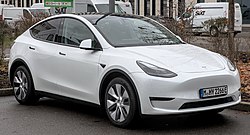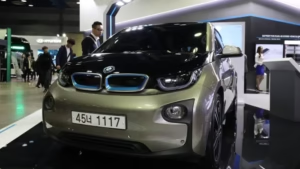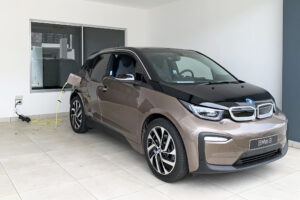As the world shifts towards more sustainable energy solutions, electric vehicles (EVs) have become a major point of focus in the global automotive industry. Bangladesh, a rapidly developing nation with increasing urbanization and a growing middle class, is gradually embracing this transformation. Electric cars are slowly gaining traction in the country, driven by environmental concerns, rising fuel costs, and supportive government initiatives. This blog explores the current status, challenges, opportunities, and future prospects of electric cars in Bangladesh.

The Need for Electric Cars in Bangladesh
Bangladesh faces several pressing environmental issues, including severe air pollution, especially in urban areas like Dhaka. According to the World Health Organization, air quality in Bangladesh ranks among the worst globally, largely due to emissions from traditional fuel-powered vehicles. Moreover, the country’s heavy dependence on imported fossil fuels adds to the financial burden and energy insecurity.
Electric vehicles offer a cleaner and more sustainable alternative. EVs produce zero tailpipe emissions, which can significantly improve air quality and reduce greenhouse gas emissions. For a densely populated country like Bangladesh, where traffic congestion is common and road transportation is a major contributor to pollution, transitioning to electric cars could have transformative effects.

Current Market Landscape
The electric vehicle market in Bangladesh is still in its infancy. While electric three-wheelers (locally known as “easy bikes”) are quite popular in small towns and rural areas, the adoption of electric cars is still limited. However, there has been a gradual increase in interest and availability of EVs, particularly among environmentally conscious consumers and urban elites.
Brands like Nissan, Hyundai, and Tesla have made their way into the Bangladeshi market, mainly through private importers. The Nissan Leaf and Hyundai Kona Electric are among the few models available, although they remain expensive due to high import duties and taxes. The lack of local manufacturing further inflates costs and limits accessibility.
Government Policies and Initiatives
The Bangladeshi government has shown interest in promoting electric vehicles as part of its broader sustainability and energy efficiency goals. Some key initiatives include:
- EV Policy Development: The government has been working on a national EV policy aimed at providing incentives for buyers and encouraging investment in local EV manufacturing and infrastructure.
- Import Duty Reductions: There have been proposals to reduce import duties on EVs to make them more affordable.
- Infrastructure Development: Plans are underway to develop EV charging infrastructure in major cities, with the involvement of both public and private sectors.
Despite these efforts, policy implementation has been slow, and concrete steps are yet to be fully realized. Clear and comprehensive EV policies are essential to provide direction and build investor and consumer confidence.

Challenges Facing EV Adoption in Bangladesh
- High Initial Costs: The price of electric cars remains a significant barrier for most consumers. Without substantial government subsidies or local manufacturing, EVs are not cost-competitive with traditional vehicles.
- Lack of Charging Infrastructure: The absence of a widespread and reliable charging network makes owning an EV inconvenient, especially for long-distance travel.
- Limited Awareness and Technical Expertise: Many potential buyers lack information about the benefits and maintenance of EVs. Additionally, mechanics and technicians trained in EV servicing are scarce.
- Energy Supply Concerns: Bangladesh’s power grid already struggles to meet existing demand. A surge in EVs could further strain the system unless renewable energy integration is improved.
- Import Dependence: Heavy reliance on imported EVs and components increases costs and limits the potential for localized economic benefits.
Opportunities and Benefits
Despite the challenges, the adoption of electric cars in Bangladesh offers significant opportunities:
- Environmental Benefits: Reduced emissions will help improve public health and combat climate change.
- Economic Advantages: Decreasing reliance on imported fossil fuels can improve the trade balance and energy security.
- Job Creation: Developing a local EV industry could generate employment opportunities in manufacturing, maintenance, and infrastructure development.
- Technological Advancement: Encouraging EV adoption can promote technological innovation and knowledge transfer.

The Role of the Private Sector
Private companies can play a pivotal role in accelerating EV adoption. Some businesses have already started investing in EV-related projects, such as installing charging stations, importing EVs, and offering leasing options. Collaboration between automakers, tech firms, and utility providers can help build the necessary ecosystem for EVs to thrive.
Ride-sharing companies could also spearhead the transition by integrating electric vehicles into their fleets. This would not only lower operational costs but also increase EV visibility and acceptance among the general public.
International Support and Investment
International organizations and foreign investors can support Bangladesh’s EV transition by providing financial assistance, technical expertise, and technology transfer. The country can benefit from global experiences and best practices in EV adoption. Climate financing and green technology grants from institutions such as the World Bank and the Asian Development Bank could help fund infrastructure and policy initiatives.
Future Prospects
The long-term outlook for electric cars in Bangladesh is promising. With the right mix of policy support, investment, and public awareness, the country could witness a significant shift towards electric mobility over the next decade. Key milestones to watch for include:
- Introduction of a comprehensive EV policy
- Expansion of charging infrastructure in major cities
- Entry of more affordable EV models
- Growth of local EV assembly and manufacturing
- Increased public and private sector collaboration
Conclusion
Electric cars represent a vital step toward a cleaner, more sustainable future for Bangladesh. While the road to widespread EV adoption is fraught with challenges, the potential benefits—environmental, economic, and social—make it a journey worth undertaking. Through coordinated efforts by the government, private sector, and international community, Bangladesh can pave the way for a greener, smarter transportation system that aligns with its development and climate goals.